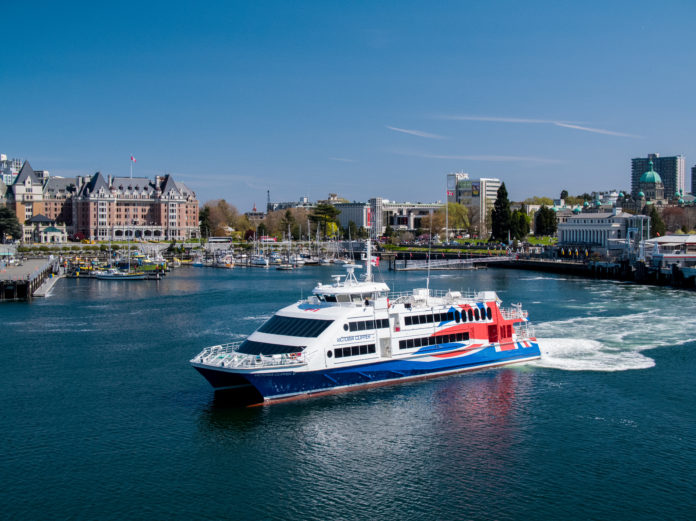Cross-border ferry companies are prepping their services after the Canada Border Services Agency (CBSA) announced the reopening of multiple terminals.
In Victoria, the announcement that the Belleville and Black Ball Terminals will be reopening as of September 6th was greeted with fanfare by local leaders.
“Our marine border is a vital link for our region and we’re thankful the Canada Border Service Agency has found the capacity to staff ferry terminals in the Inner Harbour as of Sept. 7th,” Greater Victoria Chamber of Commerce CEO Bruce Williams said.
“The Victoria Clipper and Coho Ferry connect Greater Victoria with Washington State, which is extremely important for our tourism sector.”
The news was also met with reactions of relief, as some pointed out that marine borders were excluded from an initial air and land border reopening on August 9th.
Victoria mayor Lisa Helps pointed out that that exclusion caused confusion for local industry and business.
“There was also concern that because of suspended service during the COVID-19 pandemic, the Belleville Terminal had lost its status as a port of entry into Canada,” Helps said on Tuesday.
“The Belleville Terminal is an important entry way to the region and a key engine of the region’s economy. The Coho and Clipper are critical links for Victorians with our neighbours to the south and we look forward to this long-standing border crossing being reopened.”
Representatives for the Coho and Clipper lines say they will still need time to prepare for a potential restart of service, and the first ferries won’t run until at least a couple of weeks after the terminals reopen.
Clipper CEO David Gudgel says they are looking at a tentative restart date of September 17th for their first sailing on their Victoria to Seattle service.
“What we see this time of the year is more emphasis on weekend getaways,” Gudgel told Victoria Buzz.
“So as we come back we’re looking at doing an amended service, where we’ll come back a little bit slowly and offer Friday through Monday service, to begin with.”
While a global shortage of qualified mariners is impacting other marine-based businesses and operations, the Clipper CEO says he is confident that they will have staff ready to go for the fall.
However, other challenges do remain in place. According to CBSA, travellers eligible to enter Canada will be required to have a negative COVID-19 test result no more than 72 hours prior to their arrival. Alternatively, they must have a positive test result taken between 14 and 180 days before departure to Canada.
These test results have to be provided to a border official. On top of this, proof of full vaccination must also be submitted 72 hours before arriving at the border.
“It’s not, in a true sense, open,” said Ryan Burles, President of Black Ball Ferry Line, in an interview with Victoria Buzz.
“[Canadians], too, have to have a PCR test to come back in. So, logistically, how do you do that? When do you do that? How much does it cost? They’re all hurdles.”
On top of this, while Canada is working to allow Americans entry to our borders, the Biden administration has not yet reciprocated.
The U.S. government recently extended a restriction on all non-essential travellers, including Canadians, until September 21st.
With that closure in mind, Burles says the Coho ferry line will need more time to get into operation. He thinks that following a confirmation that the American border will open to Canadians, his service could be running again 10 to 14 days afterwards.
Nevertheless, Burles says the terminals reopening are an important step towards the resumption of services and business.
“It’s really important that this is not closed, to be able to start operating when it comes to bringing people on board.”



